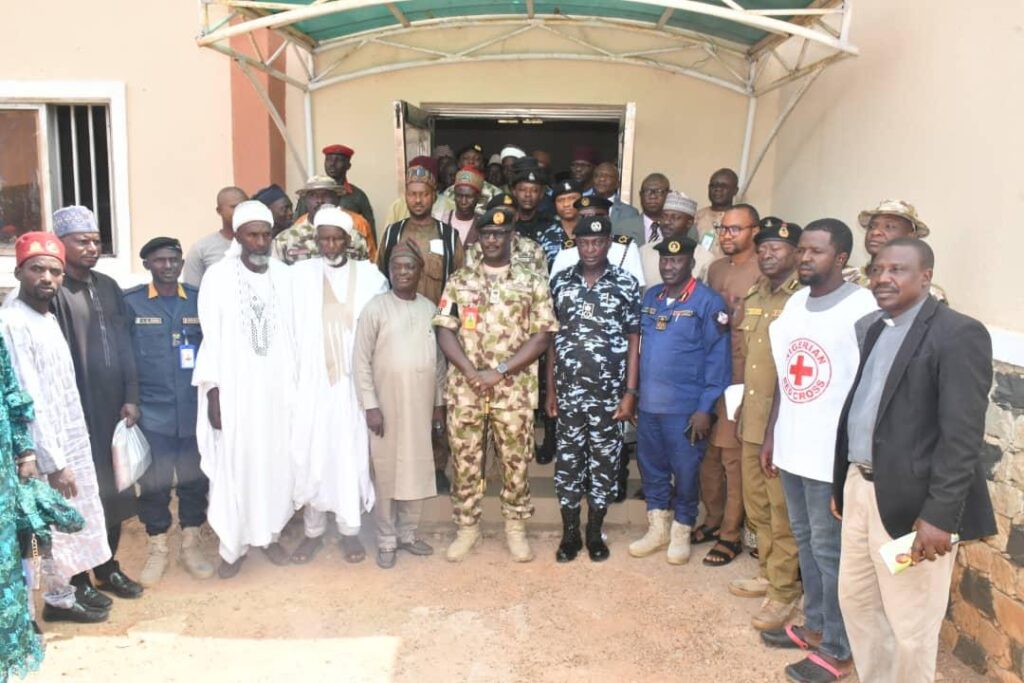In a bid to de-escalate rising security tensions in Barkin Ladi Local Government Area (LGA) of Plateau State following a recent deadly attack, the General Officer Commanding (GOC) 3 Division of the Nigerian Army and Commander of Operation SAFE HAVEN (OPSH), Major General Abdulsalam Folusho Oyinlola, convened a stakeholders’ engagement to chart strategies for restoring peace and stability in the area.
This comes after gunmen, suspected to be Fulani herdsmen, attacked Rakok village in Gashish District on Monday night, killing three youths and injuring four others.
Addressing the gathering, Major General Oyinlola commended residents of Barkin Ladi for their past cooperation with security agencies and for fostering peaceful coexistence.
He emphasized that the area must not be allowed to descend into avoidable conflict, urging the strengthening of early warning systems for swift intervention.
The commander noted that security operatives are intensifying efforts to track down the perpetrators and prevent further violence.
He urged communities to prioritize dialogue over violence and support the military with timely, credible intelligence to aid early response and forestall further breakdown of law and order.
To mitigate risks posed by undocumented individuals, he also called on the local government to compile a comprehensive biometric database of residents and immigrants.
In his remarks, the Da Gwom Rwey and Chairman of the Barkin Ladi Traditional Council, His Royal Highness Edward Bot, condemned the recurring attacks and called for an immediate end to the violence.
He urged all parties to operate within the confines of the law.
Also speaking, the Chairman of Barkin Ladi LGA, Hon. Gyang Pwajok, described underage grazing as one of the triggers of the ongoing crisis. He commended OPSH for its swift response to the Gashish attack, which he said prevented a potential escalation.
Other stakeholders expressed deep concern over the rising loss of lives in the area and called for a review of existing agreements governing relations between farmers and herders.
They emphasized the need for a balanced, lawful framework that promotes peaceful coexistence.
The engagement, which included stakeholders from Sector 4 and the Forward Operating Base (FOB) in Gashish, had in attendance heads of security agencies, traditional rulers, religious leaders, community leaders, youth representatives, women leaders, and government officials.















